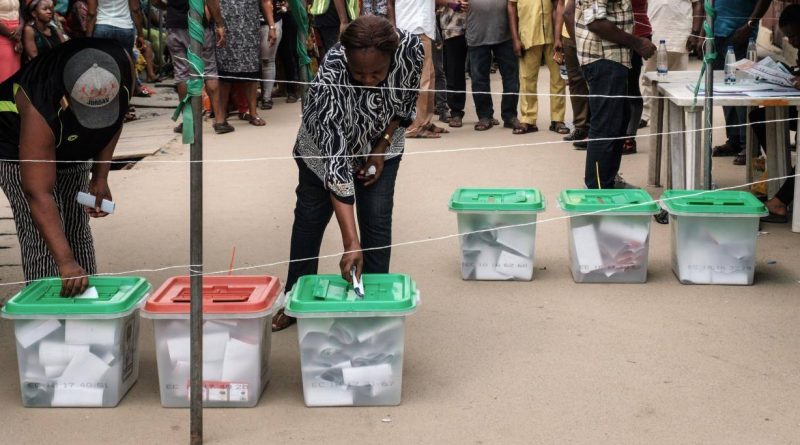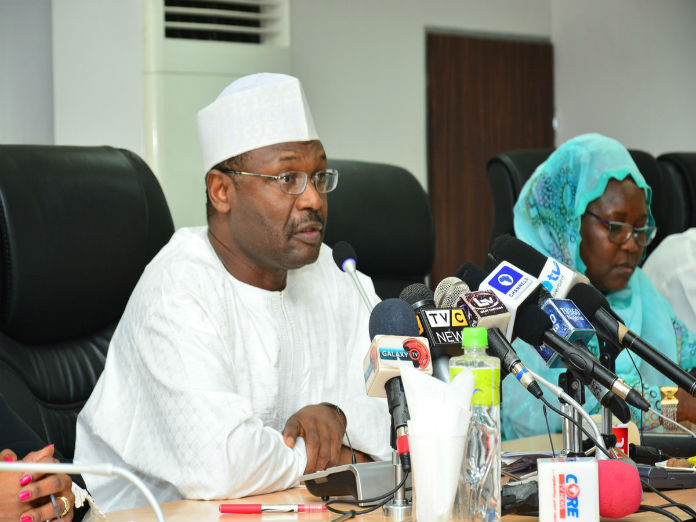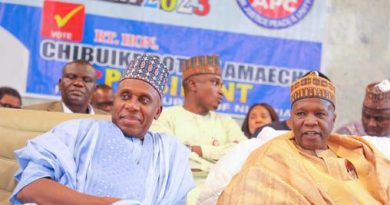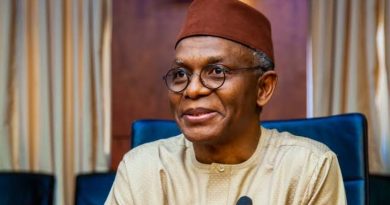CSOs To INEC: Fix BVAS, Bar Corrupt Officials From Governorship, State Assembly Polls
Oru Leonard
Ahead of March 18 governorship and state assembly elections, the Independent National Electoral Commission (INEC) has been urged to fix all glitches that previously affected the Bimodal Voter Accreditation System (BVAS), the results viewing portal, logistics; and prevent corrupt personnel from being part of the exercise.
Civil Society Organisations, Center for Citizens with Disabilities (CCD) and NESSACTION made the call during PUBLIC CONSCIENCE, an anti-corruption radio programme produced by the Progressive Impact Organization for Community Development, PRIMORG, Wednesday in Abuja.
Different observer groups reported widespread malfunctioning of the INEC Result Viewing portal (IREV), which hindered the real-time transmission of results on election day. There were also reports of voter intimidation, snatching and destruction of voting materials, among other issues.
She spoke during the radio programme, Executive Director, NESSACTION, Amb. Eniola Cole stated that the conduct of the February 25 presidential election did not meet the expectations of Nigerians due to issues with the IREV, political infractions and the integrity of INEC officials.
Cole stressed that INEC must prioritize tackling logistics challenges on election day, noting that the late arrival of election materials during the presidential election spiraled into other challenges that cast doubt on the integrity of the polls. While calling on citizens to ‘cut INEC some slag’ as the 2023 general elections were the first time the election umpire was deploying technology nationally.
She called on Nigerians, especially young people, not to relent in participating in the March 18 governorship and state assembly elections despite dissatisfaction with the conduct of presidential polls.
“On the issue of the IREV, nobody’s expectation was met because they did not deliver. But the question is, is the IREV the only yardstick for determining whether an election was credible? This was a first-time test nationwide. Why is the success or failure of the entire election laid only on the IREV? For the BVAs, the locations we observed, I’m yet to see any of our reports say otherwise.
“Honestly, I think Nigerians should cut them (INEC) some slack. Let’s be careful.
We have seen progress. Let us trust and see what they deliver on March 18.
“Another thing that could bring credibility to the process is to enhance what is required. A national stress test was not done on the IREV.
“The integrity of poll officials also comes from political infractions. Somebody that receives bribes should face the penalty, but why are politicians going out to bribe INEC officials? Can that also should be addressed,” Cole lamented.
On his part, Research Officer at the Center for Citizens with Disabilities (CCD), Humphery Eze Ukeaja, called on INEC to learn from their mistakes and recover public trust by ensuring punishment is meted out to all officials that were part of the irregularities that marred the 2023 presidential elections. As well as fix glitches from BVAS, IREV and security.
Ukeaja urged all Nigerians to come out and vote despite their unhappiness with the election process.
“INEC must learn from the mistakes of what happened on the 25th February presidential election. Reports are all over for them to read; security and logistics, the BVAS issues should be addressed purely going into state elections.
“When we talk about renewing trust on the part of INEC, we have to see actions. We have to see heads roll. We have to see people being penalized for us to regain their trust because most of them participated in the malpractice.
“Someone has to pay for the malpractices. To be sincere, the level of apathy might show in the March elections, but the wounds are still fresh. It will take a little bit of medium-term to a long-term effort to bring people back,” Ukeaja stressed.
INEC continues to face criticisms from CSOs, and foreign and local observers since it announced the presidential candidate of the ruling All Progressives Congress, APC, Senator Bola Tinubu as the winner of the presidential election.
Earlier on Wednesday, London-based independent policy institute Chatham House released an analysis of the February 25 Presidential and National Assembly elections and faulted the Prof. Yakubu-led Commission for being ill-prepared and jettisoning its guidelines.
Public Conscience is a syndicated weekly anti-corruption radio program used by PRIMORG to draw government and citizens’ attention to corruption and integrity issues in Nigeria.
The program has the support of the MacArthur Foundation.




